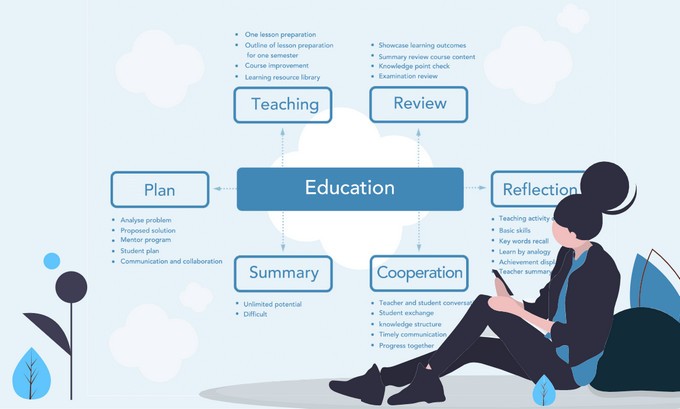Online tutoring has transformed the way students learn, making education more accessible and personalised. One powerful technique that enhances this learning experience is mind mapping. Whether you’re a student trying to absorb complex topics or an educator looking to deliver lessons more effectively, mind mapping can significantly improve comprehension, retention, and engagement. In this article, we explore why mind mapping is an essential tool for effective online tutoring.
1. Enhancing Understanding Through Visual Learning
Many students struggle with traditional learning methods that rely heavily on reading and memorisation. Mind mapping, however, presents information in a visual format that is easier to digest and recall.
- A mind map organises information hierarchically, allowing students to see connections between different concepts.
- Visual representation aids memory retention by making study sessions more interactive.
- Students can use colours, images, and keywords to reinforce learning, making subjects like science and mathematics online tutoring more effective.
By transforming large chunks of information into a structured, visual format, mind mapping can help students grasp difficult subjects with greater ease.
2. Encouraging Active Engagement
Passive learning—where students simply read or listen to information—can often lead to disengagement. Mind mapping fosters active learning by encouraging students to create their own study materials.
- When students build mind maps, they summarise information in their own words, leading to better comprehension.
- The process of categorising and linking ideas improves critical thinking skills.
- Tutors can use digital mind mapping tools to collaborate with students in real time, making lessons more interactive and engaging.
By involving students in the learning process, mind mapping increases motivation and participation in online tutoring sessions.
3. Simplifying Complex Topics
Subjects such as mathematics, science, and history often contain intricate concepts that can be overwhelming. Mind maps break these topics down into smaller, more manageable sections.
- For mathematics, a mind map can illustrate formulas, problem-solving steps, and relationships between equations.
- In literature, students can map out character relationships, themes, and plot developments.
- Tutors can design structured mind maps to provide a clear, step-by-step approach to difficult topics.
By simplifying complex ideas, students gain confidence in their learning and develop a clearer understanding of the subject matter.
4. Personalising the Learning Experience
One of the greatest benefits of online tutoring is its ability to provide personalised education tailored to individual needs. Mind mapping further enhances this by allowing students to structure their notes in a way that makes the most sense to them.
- Each student can create unique mind maps that reflect their thought processes and learning styles.
- Tutors can adapt their teaching methods based on how students organise information in their maps.
- Digital mind mapping tools offer flexibility, allowing students to modify and expand their maps as they progress.
This customisation ensures that every student receives a learning experience suited to their needs and pace.
5. Improving Exam Preparation and Revision
Effective revision is key to academic success, and mind mapping can make studying more efficient and enjoyable.
- Mind maps condense large amounts of information into visually appealing summaries, making revision faster.
- Instead of rereading entire textbooks, students can quickly review key points from their mind maps.
- Tutors can assist students in creating revision mind maps that highlight essential concepts and problem areas.
By streamlining revision, students can maximise their study time and perform better in exams.
6. Boosting Collaboration in Online Tutoring
Collaboration is a crucial element of successful online tutoring. Mind mapping encourages teamwork by allowing students and tutors to share and edit maps together.
- Tutors can create collaborative mind maps where students contribute ideas and ask questions.
- Group tutoring sessions can use mind maps for brainstorming and problem-solving activities.
- Online platforms offer interactive features that enable real-time collaboration, fostering a more engaging learning experience.
This interactive approach makes online tutoring more dynamic and helps students retain information more effectively.
Final Thoughts
Mind mapping is an invaluable tool for both students and educators in the online tutoring space. It enhances understanding, encourages engagement, simplifies complex topics, and personalises the learning experience. Whether you’re looking for tutors online in the UK services or want to improve study techniques, incorporating mind mapping into lessons can lead to better academic performance and long-term learning success.
By embracing this visual and interactive method, students can unlock their full potential and make learning more effective and enjoyable. So, why not start using mind maps today to revolutionise the online tutoring experience?







